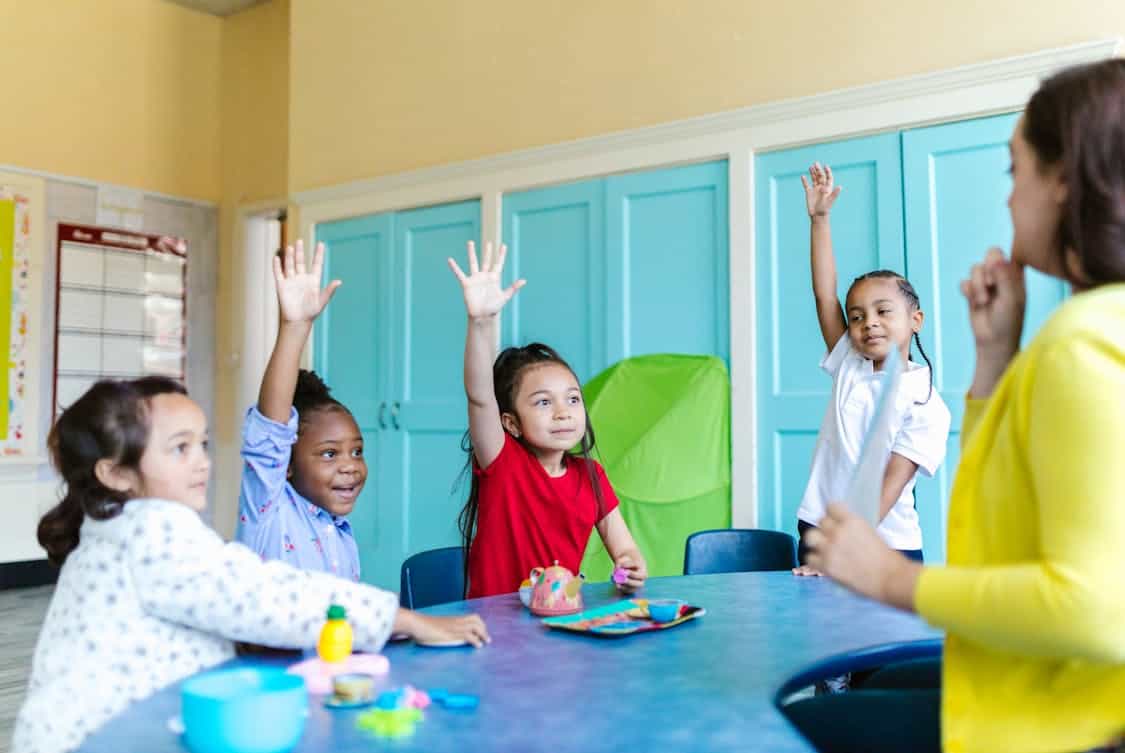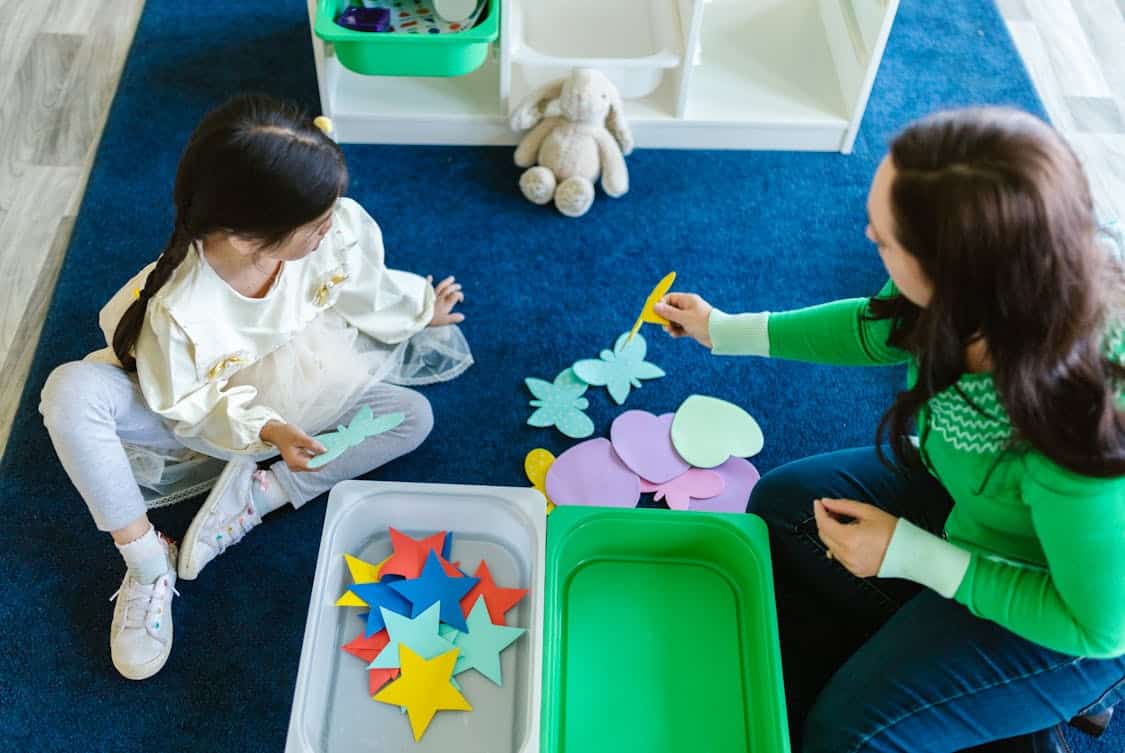
Daycare can play a major part in shaping a young child’s sense of self and competence, offering a setting where small successes add up. For many little ones, those early hours away from family are full of firsts: first art projects, first shared snack, first time helping clean up.
Caregivers and peers provide mirrors that reflect effort and intention back to the child, which helps confidence grow step by step.
The Daycare Setting And Its Structure
A predictable routine in a daycare gives children a framework where they learn what happens next, and that certainty makes choices feel safer and smaller risks easier to take. Room layout, scheduled times for rest and play, and set transitions let kids practice taking turns and following simple rules, and those small wins stack up into trust in their own abilities.
When staff clearly label areas and materials, children learn language for tasks and objects, and that naming power often leads to more proactive behavior. Quiet corners for calming and active spaces for running around both matter, because balance keeps frustration from blocking learning.
Emotional Safety And Secure Attachments

Secure relationships with caregivers at daycare let children test feelings and reactions without constant worry, which helps them try new things and recover from setbacks. Consistent responses to distress—calm voices, gentle touch, a quick return to routine—teach that emotions are manageable and can be shared with others.
Over time, children internalize that their bids for comfort will be met, and that internal confidence shows up as curiosity and willingness to engage. When an adult notices a tear, names the feeling, and offers a simple strategy, a child learns emotional language and gains a tool for self-regulation.
Social Skills Through Group Play
Group play is where negotiation, sharing, and turn-taking get real and sometimes messy, and that realness is a laboratory for confidence-building. If you’re looking for a nurturing environment that encourages teamwork and early social learning, enrolling your child in a trusted day care chicago center can provide those daily opportunities for growth.
Peer conflicts, when guided well by staff, become chances to practice saying what you want, listening, and trying again after a mistake, which reinforces a sense of agency. Cooperative projects, such as building a block town or enacting a short play, give visible evidence that doing something with others can succeed, and success breeds desire to participate again. Play scenarios let children slip into roles, try out leadership or followership, and learn that either choice is useful and respected.
Language Development And Confidence
Language skills grow fast in group settings where conversation happens naturally, and the more words children have, the more they can express needs, explain ideas, and join conversations. Caregivers who repeat a child’s phrase, expand it slightly, and add one new word help build a bridge from gesture to sentence, and that bridge supports clearer communication.
Singing, storytime, and snack-time chatter practice different registers of speech, so kids learn to ask, narrate, and respond in multiple contexts. As vocabulary grows, children often take the lead in interactions, which bolsters self-assurance and reduces frustration.
Independence In Everyday Routines
Simple daily tasks—washing hands, putting on shoes, carrying a cup—offer countless micro-opportunities for a child to claim competence and show initiative. When staff break tasks into doable steps and celebrate incremental progress, a child learns that complex actions can be broken down and managed.
Self-help skills also create practical freedom: a child who can manage a coat needs less help and therefore practices decision-making more often. Little rituals of responsibility build a feedback loop where autonomy produces pride, and pride invites more attempts at independence.
Problem-Solving And Risk-Taking
Play often includes small, manageable risks—climbing a low structure, trying a new puzzle, or testing a paint-mixing idea—and these moments teach children how to assess outcomes and keep trying. When adults step back just enough to allow trial and error, kids learn that falling or failing is informative and not catastrophic, which strengthens resilience and confidence.
Guided reflection after a challenge, offered in plain language, helps children form basic strategies for future problems without feeling judged. Over time, repeated encounters with small problems help kids learn to think on their feet and trust their own judgment.
Teacher Roles And Responsive Guidance
Teachers and caregivers who read cues and respond with timely support shape a child’s expectation that help will arrive when needed, but not overpower attempts at independence. Skilled staff balance intervention and observation; they step in when safety is at stake, and they step back when scaffolding can be minimal, which teaches children to try first and ask later.
Praise that focuses on effort and specific actions—name the step taken, not just label the child—builds a growth mindset and keeps the spotlight on process rather than fixed ability. Trusting adults who offer clear limits and warm encouragement give kids a sense of reliable structure where confidence can take root.
Parent-Provider Partnerships Strengthen Confidence
Open communication between home and daycare keeps messages about behavior and capability consistent, which helps children form stable expectations about what is normal and welcome. Sharing short notes about wins and small worries gives caregivers tools to connect with a child’s current state and extend support in ways that match family values.
When parents and staff exchange simple strategies—phrases, routines, or motivational cues—the child hears a steady chorus that reinforces effort and celebrates progress. That chorus, repeated across settings, helps a child internalize competence rather than view success as situational.
Measuring Progress And Individual Differences
Not every child follows the same path or timetable, and good programs watch for individual patterns rather than insist on one-size-fits-all milestones. Observation notes, photos of projects, and brief check-ins give tangible records of change, and those records help adults spot slow shifts that might otherwise be missed.
Respecting temperament—some children warm up slowly, others jump in fast—keeps expectations realistic and supports tailored responses that still encourage growth. By tracking small gains and adjusting strategies, caregivers can help each child build confidence at a comfortable pace, one steady step at a time.
